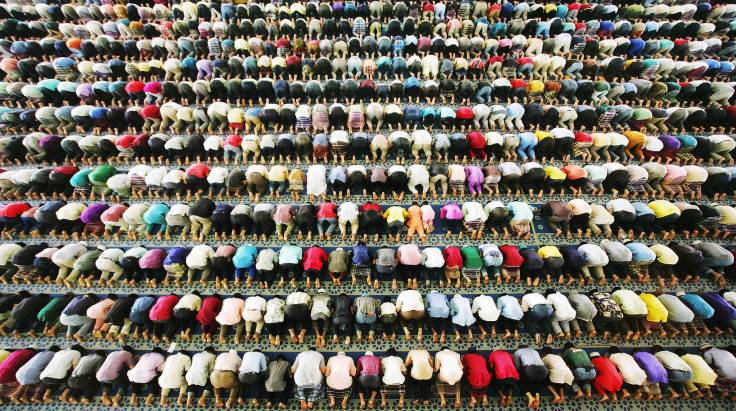When Is Ramadan 2018? Fasting Rules, Survival Tips For Muslim Holy Month

The holy month of Ramadan will most likely begin Tuesday, depending on sighting of the moon. Each year, Muslims around the world mark the fasting month, which falls in the ninth month of the Islamic calendar.
In the United States and Europe, astronomical calculations decide the beginning of Ramadan and for this year it begins from the eve of May 15, with the first day of fasting being May 16. Saudi Arabia and most Arab countries are expected to sight the new moon on May 15. Other countries like Morocco, Iran, Pakistan and India may see the new moon on the following day as the current lunar month started one day later for these countries.
Muslims across the world mark Ramadan by fasting from dawn (fajr) until dusk (maghrib) (abstaining from both water and food), praying five times a day and almsgiving. Fasting begins 20 minutes before dawn and only able-bodied adults must fast. Meaning children, pregnant, breastfeeding or menstruating women, or those who are very ill are exempt, according to Islamic Society of Rutgers University (ISRU). Those who are travelling can also skip some days of fasting during the Ramadan month.
During fasting, Muslims must abstain from eating or drinking, sex, smoking and telling lies, among other practices. Muslims break their fast after consuming "iftar" immediately after sunset. The fast is broken by drinking water or eating dates while chanting prayers.
Those who are fasting during Ramadan also observe the supererogatory prayer known as "Taraweeh." The five daily prayers are more important than this recommended prayer. Several Muslims study and recite the Quran during the holy month of Ramadan.
Fasting during Ramadan can get rigorous and in some countries, where it falls during summers, the observance period could stretch up to 22 hours. Following are some tips to make the day a little easier.
1. Prior to Ramadan, a Muslim should always consult with a doctor if he/she could observe the fast as some health conditions may deteriorate due to fasting.
2. The meal before the start of fasting (suhoor) must be planned carefully so that one gets sufficient nutrients and hydration. Skipping this meal is a mistake and can make it difficult for a person to fast.
3. During the hottest times of the day, stay in cool areas (indoors or in shade preferably) and limit physical activity to avoid dehydration.
4. Enough water must be consumed after breaking the fast, preferably at least eight glasses by bedtime.
5. It may be tempting to eat just about anything while breaking the fast, in the meal known as iftar. But it is advised to eat the right food that have essential carbs, lots of potassium and magnesium, and plenty of fiber that the body has been deprived off during the day.
6. When eating, the diet must consist of healthy and nutritious food, like lentils, beans, nuts, eggs and yogurt.
© Copyright IBTimes 2025. All rights reserved.



















